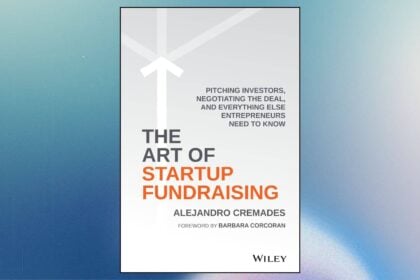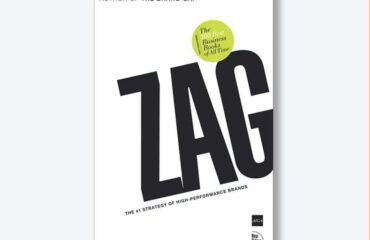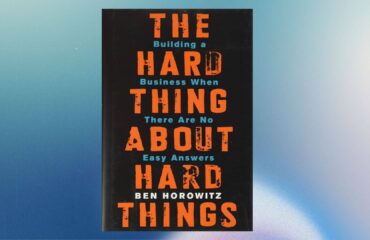
Raising capital is the ultimate challenge for most startups. With global funding slowing down, securing investment has become even more competitive. Alejandro Cremades’ book, The Art of Startup Fundraising, comes at a crucial time for founders who are navigating this high-stakes landscape.
Whether you’re trying to secure your first round of seed funding or preparing for a series A, this book is a practical guide for entrepreneurs who want to master the art of pitching and negotiating with investors.
Book Overview
The Art of Startup Fundraising is a comprehensive guide for startup founders looking to raise capital effectively. Written by Alejandro Cremades, a serial entrepreneur and investment expert, the book dives into the complexities of fundraising, offering practical advice and strategic insights.
Summary
This book covers all aspects of startup fundraising, from understanding the mindset of investors to creating compelling pitch decks and negotiating deals. Cremades provides a thorough explanation of the fundraising ecosystem, including various types of investors—angel investors, venture capitalists, and crowdfunding platforms.
He also gives guidance on different rounds of funding, equity, and valuation strategies, with a clear focus on early-stage startups. What sets the book apart is its actionable advice, backed by real-life examples and case studies that make it relevant to today’s entrepreneurial landscape.
Key Insights and Lessons
– Know Your Investor Types: Not all investors are created equal. Cremades stresses the importance of identifying the right kind of investor for your stage of growth, whether that’s angel investors, venture capitalists, or even family and friends.
– Master the Pitch: Cremades breaks down the essentials of a winning pitch, from the narrative structure to designing a pitch deck that resonates with investors. A critical takeaway is the power of storytelling—why investors need to connect with your vision on an emotional level.
– Negotiating Your Terms: The book delves into negotiation strategies, from managing investor expectations to closing a deal that benefits both the entrepreneur and the investor. Understanding term sheets and valuation is a key part of this process.
– Crowdfunding as a Tool: A significant section is devoted to crowdfunding, which Cremades sees as a game-changer for startups looking to raise capital from non-traditional sources.
Quotes
– “The ability to fundraise is not just about money—it’s about building long-term relationships with people who believe in your vision.”
– “The best investors are not just giving you capital; they’re bringing their networks, experience, and credibility.”
Practical Applications
– Identify Your Investor Match: Founders should use Cremades’ advice to pinpoint the right type of investor for their business model and growth stage. For example, a founder might realize that angel investors are more suitable for their seed round due to the personalized mentorship they offer, compared to venture capitalists who may focus more on larger-scale growth.
– Crafting the Pitch: A startup founder could apply Cremades’ advice by refining their pitch deck to highlight the problem their product solves, the size of the market, and the team’s capability. Practical exercises, like creating a one-minute elevator pitch, can directly translate into pitching scenarios.
– Crowdfunding Consideration: For founders who might not have access to traditional VC funding, Cremades offers insights on how to use platforms like Kickstarter or Indiegogo to raise money while validating the business idea.
Strengths
– Actionable Insights: Entrepreneurs appreciate that *The Art of Startup Fundraising* provides practical steps that can be immediately applied to their fundraising efforts. The advice on storytelling, in particular, resonates with founders who need to create emotional connections with investors.
– Crowdfunding Insights: The book’s in-depth look at crowdfunding offers a fresh perspective, particularly for startups in niche markets that may not initially attract venture capitalists.
– Comprehensive and Easy to Digest: Readers value the straightforward language and the way complex financial topics are broken down into digestible sections.
Weaknesses
– Not Industry-Specific: Some founders feel that while the book is helpful, the advice can sometimes feel too broad and may not apply directly to specialized industries like biotech or hardware startups, which have different funding landscapes.
– Lack of Depth in Negotiation Strategies: A common criticism is that the negotiation tactics, while useful, could benefit from deeper exploration. Some readers have expressed a desire for more advanced strategies when dealing with venture capitalists or negotiating complex term sheets.
Questions for You
– What are the most significant assumptions in your current business idea that need validation before seeking funding?
– Which type of fundraising strategy mentioned in the book would be most suitable for your business model, and why?
– How can you leverage crowdfunding as a tool for both raising capital and validating your startup’s value proposition?

Join Our Founder Network
If you’re an entrepreneur looking to apply the insights from The Art of Startup Fundraising in your own journey, we invite you to join our Founder Network. Here, you’ll connect with fellow founders, gain expert guidance on navigating the fundraising process, and get access to resources that can help you master your pitch, build relationships with investors, and secure the funding your startup needs to grow.
Together, we’ll help you succeed in the competitive world of startup fundraising.



